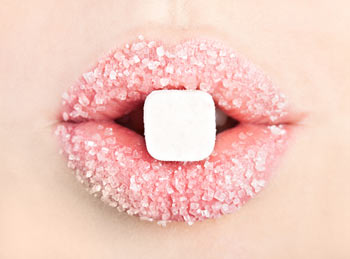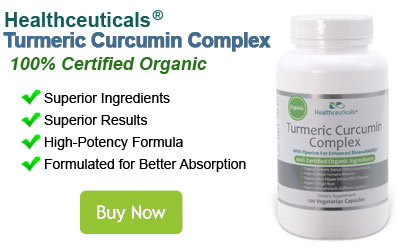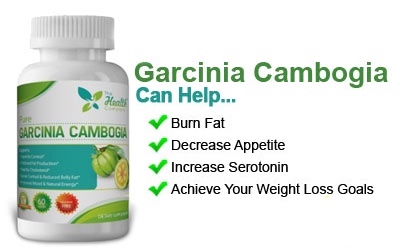
Sugar. It's been a big topic of conversation lately, and it should be. It seems as though you can't eat much without finding that it contains some form of sugar. In fact, many Americans consume a pretty large amount of added sugar. Some sources suggest that the number is around 150 pounds per person per year.
Many people are trying to get sugar out of their daily diets, and they have several good reasons for doing so.
Why Should You Consider Giving up Sugar?
When you eat something sweet, it triggers activity in the reward center of your brain to release dopamine. This makes you feel happy and secure. Over time, if you eat sugar excessively, you will produce less dopamine, and it will take more sugar to induce similar happy feelings. This is akin to the way that substances like tobacco and cocaine cause addiction. Many scientists believe that sugar is addictive and can result in depression if it is overused.
Physically, once the sugar is ingested, it is broken down by your body into glucose and fructose.
Glucose is used for energy in your body. Your pancreas releases insulin to deliver the glucose to your cells to be used. However, if you eat a lot of glucose at once, your body's insulin spike results in a sudden drop in that glucose, which triggers more cravings. The resultant unstable blood sugar levels and insulin highs can lead to insulin resistance and diabetes over time.
Fructose must be broken down further in your liver, but it can only do so when the fructose is present in small amounts. Large amounts can lead to accumulations of fat in your liver, resulting in a serious illness called nonalcoholic fatty liver disease. Insulin aids the liver in breaking down the fructose too, so the pancreas must release more when high levels of fructose are present, adding to the potential for insulin resistance to develop. High levels of fructose ingestion also result in lower levels of good cholesterol and higher levels of triglycerides to be produced, which can lead to heart disease.
If all of that sounds pretty bad to you and you would like to eliminate sugar from your diet to increase your health and happiness, read on.
Preparation for Quitting Sugar
As with any major life change, it's good to be prepared with a plan before you start eliminating sugar from your life. Here are some things you can do before beginning that can help you be successful in the long term.
- Get a friend or family member to do it with you if you can. Having someone to share battle stories with and confess to if you slip up can do wonders for keeping you on track. However, don't assume that everyone is as interested in giving up sugar as you are. Rather than upsetting someone by asking them directly to ditch sugar with you (they might feel uncomfortable if they get the idea that you think they "need" to go sugar-free), you could make a group announcement on your social media accounts or in another group setting and allow interested people to approach you.
-
Be ready for sugar detox symptoms. Not only will you have to fight cravings and keep your willpower when you're quitting sugar, but you will probably also have to deal with some unpleasant physical symptoms. These withdrawal symptoms happen because you've removed the sugar's trigger of dopamine release. Some things you might experience when you stop eating sugar include:
- Sleep problems
- Grumpiness
- Anxiety
- Lethargy
- Intense sugar cravings
-
Know how sugar can hide. In fact, it does an excellent job of sneakily entering foods you might not think of when you are trying to quit it. You must become an avid label reader when you're quitting sugar and know all the ways it can be hiding in an ingredients list. Here are some of the forms that sugar can take on a label:
- High fructose corn syrup
- Fructose
- Agave nectar
- Dextrose
- Glucose
- Galactose
- Honey
- Lactose
- Maltose
- Mannitol
- Sorbitol
- Sucrose
- Maple Syrup
- Molasses
- Beware of simple carbs. Foods that are high in simple carbs like refined white flour products, candy, and soda act like sugar in our bodies. You can learn more in this informative article: "Refined Carbs: What Are They and How Do They Hinder Weight Loss?"
- Be prepared to eat more frequently at first. In order to combat sugar cravings, you will need to keep your blood sugar levels as stable as possible, especially in the beginning. Eating foods high in protein and fiber can help. Eating smaller meals throughout the day that include them will make it easier for you to avoid sugar.
- Add healthy fat to your diet. Sources of good fat, such as avocados, nuts, and full fat cheese are great additions to meals and snacks. They help keep you full, are healthy, and fight sugar cravings.
- Eat sour foods when you crave sweet ones. Eating something sour can actually stop a sugar craving. And if you choose something like kimchi or sauerkraut, you'll be getting all those wonderful probiotics that improve your digestion and overall health.
- Take a turmeric supplement. Curcumin, a substance found in turmeric, has blood sugar stabilizing properties that can help squash sugar cravings. Be sure to choose one with organic ingredients and no fillers, like this one.
- Combat your stress. Be sure that you include relaxation and stress-relief in your sugar-stopping plan. After all, emotional sugar cravings can be as strong as physical ones. Plan to include meditation, regular exercise, hobbies, and anything else that helps you manage stress in your daily routine.
Steps for Quitting Sugar
Now that you have an action plan and some support at the ready, it's time to get started. Here are some specific steps to follow for getting sugar out of your diet.
- Stop drinking sugary beverages. Many people get a large part of their daily sugar intake from their drinks. From creamers and sugar in morning coffee to midafternoon lattés or sodas to evening cocktails, beverages can hide an amazing amount of sugar. Cutting sugar out of your drinks can decrease your intake by half or more. Try sticking to water, black coffee, unsweetened tea, and milk for your daily drinks.
- Get rid of obvious sugary snacks. Once you've got your sugary drinks nixed, take a look at your snacks. If you're used to having cookies, candy, or other sweets as pick-me-ups throughout the day, figure out how to get rid of that habit. Replace the sweet snacks with cut up vegetables, nuts, or seeds, or take a walk around the block to kick the craving.
- Eliminate hidden sugar sources. Learn the ways that sugar likes to "hide" in foods. Study the list above, so you can more easily spot it on labels. Go to the store with your list and check the labels of the foods you usually buy. If there is added sugar, look for an alternative product without it. Write down the name of the new product so you can easily remember what to pick up next time. Don't assume a product doesn't have sugar in it; always check. High fructose corn syrup and other forms of sugar are present in a huge variety of foods, including many salad dressings, cereals, cold medications, crackers, dairy products, and soups. Also, beware of low-fat items, which often have extra sugar to make up for the loss of flavor from fat.
- Learn your personal limits. Once your sugar addiction is broken, you may or may not be able to include small amounts of it in your diet. Some people can have fruit or even a little bit of processed sugar occasionally without falling off the wagon, while others are quite sensitive to the effects of even a small amount of sugar and find that having it triggers cravings. You will need to discover your personal limits and work within them for long-term sugar-quitting success.
What About Artificial Sweeteners?
It may be tempting to satisfy your sweet tooth with items containing artificial, or man-made, sweeteners instead. You will need to make the choice yourself about whether sugar substitutes such as aspartame (Nutra-Sweet, Equal), sucralose (Splenda), or saccharin (Sweet 'n' Low) are right for you.
Some things to consider include:
- Artificial sweeteners encourage sugar cravings and dependence (Yang, 2010).
- Studies in rats show greater weight gain when aspartame or saccharin are consumed than when sucrose is eaten (Fernanda de Matos Feijóa, 2013).
- Artificial sweeteners negatively affect your gut flora and subsequently result in glucose intolerance which can lead to diabetes (Jotham Suez, 2014). You can learn more about your gut microbes' effect on weight loss here: "Maintaining a Healthy Gut for Healthy Weight Loss."
How About Other Sugar Alternatives?
There are several natural sweeteners available that you might consider using instead of sugar or artificial sweeteners. They include:
- Stevia. Marketed as Truvia or Merisant, stevia is a natural sweetener derived from a plant.
- Luo Han Guo. This substance is a natural sweetener from a plant found in China.
- Xylitol. This is a sugar alcohol that isn't as sweet as sugar and doesn't affect your blood sugar levels. It can also help fight tooth decay, but products containing xylitol must be kept away from dogs because it is highly toxic to them.
If you already have insulin resistance, you may wish to avoid all sweeteners because they can all increase that resistance.
Works Cited
- Fernanda de Matos Feijóa, C. R. (2013, Jan. 1). Saccharin and aspartame, compared with sucrose, induce greater weight gain in adult Wistar rats, at similar total caloric intake levels. Retrieved from ScienceDirect.
- Jotham Suez, T. K.-S.-G. (2014, March 27). Artificial sweeteners induce glucose intolerance by altering the gut microbiota. Retrieved from Nature: DOI: 10.1038/nature13793.
- Yang, Q. (2010, June). Gain weight by "going diet?" Artificial sweeteners and the neurobiology of sugar cravings. Retrieved from PubMed.
You May Also Like These Articles/Recipes:
Are Green Smoothies Dangerous?
Can You Lose Weight by Eating Spicy Food?
Cabbage and Capsicum: Flavor and Flair
Cauliflower and Pears: High Fiber, Low Carb Dietary Powerhouses


